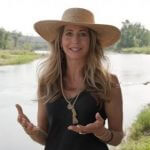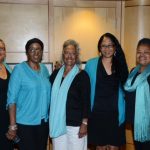Raj Shukla
Madison, Wisconsin
Raj Shukla joined the River Alliance of Wisconsin with over a decade of experience in program design, development, and management to tackle pressing social and environmental needs. Most recently as Director of Programs with Wisconsin-based nonprofit, Cool Choices, he led public engagement and energy efficiency programs in businesses, schools, and government agencies across the United States.
Previously, Raj developed youth education programs for former Vice President Al Gore’s Climate Reality Project. He trained elected officials and candidates how to effectively mobilize resources and voters with Progressive Majority Wisconsin. With the Greater Milwaukee Committee, he organized businesses in southeastern Wisconsin to invest in inner-city neighborhoods.
This interview was conducted by Carly Schmidt on August 28, 2018. Learn more about Raj’s work at the River Alliance of Wisconsin.
Did you grow up around water? Where? What are your fondest early memories of rivers, lakes, or streams?
I grew up in Berlin, Wisconsin, which is a suburb of Milwaukee. My earliest memories include seeing this massive lake that looked like the ocean. I remember being in awe of the lake during my first trip, seeing people having fun and enjoying the lake. It was early on that I realized how central water was across the state, and I always thought of water as the community connector. Now I’ve been seeing more and more people swimming in the Milwaukee River and more people realizing how vital these waters are for quality of life and creating fond memories. I think most people in Wisconsin can talk about how their life has been shaped by the water.
Did these early experiences inform your decision to pursue water conservation in your career, or did that realization come later?
I didn’t grow up as an environmentalist per se, or I was just not intentional about it. I went to New Orleans as a Red Cross volunteer when Katrina hit, I was bringing food and water to people. My life shifted then and I started thinking more about climate change. I decided to redirect my career to address climate change. And I thought about my family in Northern India, in particular. They rely mostly on glacial runoff for drinking water and to power businesses, and that glacial feed will be dry in 15 years. We face issues in Wisconsin as well—there was massive flooding just this week. So we face different challenges, but the importance of water in the climate change story is no less real and important to consider. This is what led me to River Alliance and our work protecting our water resources.
What has being part of River Network meant for you or your organization?
Being a conservationist and devoting your life to water isn’t easy or lucrative. It’s really hard work. Being a part of this community is a big part of how we sustain our own energy and hope while doing this work. River Rally is fun, and you need to find the fun in this work because often there are big challenges that make the work quite overwhelming. It’s amazing to be part of a community of like-minded people from across the country.
Aside from climate change issues, why is water protection important to you now?
There are a whole range of reasons. Now that I am with River Alliance and have started paddling, the importance of water protection is more profound. My connection to water is less intellectual and more visceral and spiritual. The sense of peace and connection to the natural world is unlike anything I’ve ever experienced. There is a certain feeling when you’re quietly floating down a river that is unique and unmistakable. These experiences make me feel so much more drawn to the work I do.
What water-related accomplishment are you most proud of?
River Alliance is in the beginnings of a big project. The first two farms in North America will be certified through the Alliance for Watershed Stewardship Standard as part of a program called Clear Water Farms. This project represents a different outlook from most environmental organizations with the agriculture industry, where there tends to be a lot of animosity and conflict. We are approaching the agricultural industry as a partner. We will work with big farms to improve practices and become better stewards of water resources. These changes will benefit agricultural businesses. This is a huge undertaking for River Alliance, but we are excited about it and trying to change the relationship between environmental organizations and the agricultural industry along the way. We hope it will ripple into other industries, as well.
It is great that you’ve been able to create a partnership from a historically turbulent relationship. Have you found that there is push-back from communities or other organizations regarding this project?
We have to work with folks and find common ground. We live in a state where small farms are being gobbled up by big agricultural business. Literally hundreds of family farms go under every year. To be an environmental organization that cares about water but doesn’t recognize the real hardship farms are facing doesn’t jive well with who we are as an organization. We have to find ways to work with people, and River Alliance has been driven by that philosophy for 25 years.
What positive changes would you like to see for water in your community over the next 10 years?
In Wisconsin, people take water for granted. Most people don’t know that in Wisconsin you’re never more than a few miles from a river, stream, or lake. It surrounds us, and we take it for granted. I would like to see us recognize the economic, political, and spiritual value of this resource in a more profound way. We are starting to see this with the reaction people have to Foxconn in Wisconsin. More people realize that water is an economic asset as the world gets warmer and more thirsty people are born into it every day. In 10 years, I would like to see a state where water is a central focus of the governing philosophy.







